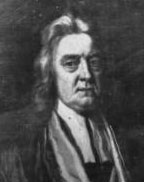| Profile | Major Works | Resources |
Sir Thomas Papillon, 1623-1702.

English liberal Mercantilist, and famous rival of Sir Josiah Child in the EIC.
Descended from a prominent French Huguenot captain who had escaped to England after the Bartholomew Day's Massacre of 1576. Thomas Papillon became an eminent merchant in the Mercer's Company of London and was active in the Huguenot community of London. Papillon was made a director of the East India Company in 1663.
Long active in London politics, in 1675, Papillon entered national politics and was elected to parliament for Dover. Losing his seat in 1681, Papillon became deputy-governor of the EIC at around this time and led the opposition to the schemes of the EIC governor Sir Josiah Child during the latter's stormy tenure in the 1680s. Papillon was ousted by Child in 1682 and sold out his shares in the EIC.
An active campaigner for religious tolerance, Papillon was condemned for sedition by Judge Jeffreys in 1684, in the context of the disputed 1682 elections of the London sheriffs (the judgment probably encouraged by Child's connections). Facing £10,000 in fines, Papillon, like so many Whigs, promptly fled into exile in the Netherlands. Papillon returned with the Glorious Revolution of 1688 and was duly rewarded with a government post on the victualling commission. In 1690, Papillon was elected to parliament for Dover (subsequently switched to London in 1695, a seat which held until 1700).
Papillon continued to lead the opposition to the still-considerable influence of Child through the 1690s, arguing strenuously for the repeal of the EIC's monopoly and opening of East Indies trade to competition. In 1691, he helped establish a financial syndicate, meeting at Downgate, to raise funds for a rival enterprise. Papillon's efforts yielded fruit in 1694, when the East India Company's monopoly was revoked, and in 1698, when Papillon's new company ("The English Company Trading to the East Indies") was chartered to compete with the older company (although Papillon himself didn't hold office in it). The companies would co-exist as rivals for a few years, before being merged.
Papillon is credited with the writing of the contentious tract The East India Trade (1677). However, authorship of this has been disputed. Some earlier writers credited it to Josiah Child, although Letwin (p.33) argues that the real author is Robert Ferguson, a Scottish divine, Whig spy and propagandist, better-known as one of the Rye-House plotters, who wrote the treatise at Papillon's house under his "direction".
|
Major Works of Sir Thomas Papillon
|
|
HET
|
|
Resources on Sir Thomas Papillon
|
All rights reserved, Gonçalo L. Fonseca
